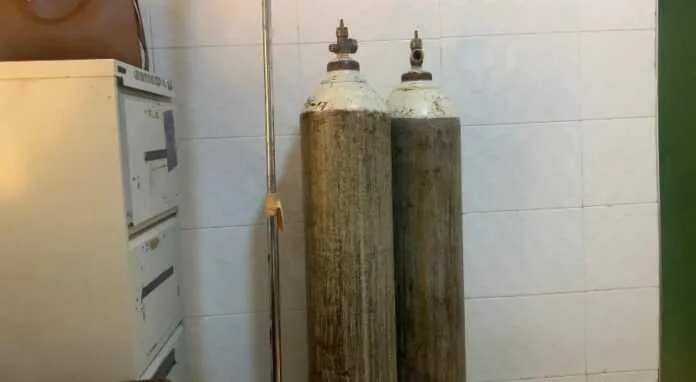Death in any form is sad. But it is more painful to lose a patient due to empty oxygen cylinders.
But what happens when the oxygen cylinders are empty while patients are in need of oxygen?
Oxygen is an essential medicine used to care for patients at all levels of the healthcare system, including in surgery, trauma, heart failure, asthma, pneumonia and maternal and child care.
The theatre bed and the beds in the wards have all felt the struggles of dying patients.
But often times, the cause of death is always what leaves memories. The sadness and grief accompanying some of these deaths are simply immeasurable. Especially, when it involves the non-availability of an essential consumable like oxygen
But how important is oxygen to patients? Medical Superintendent of the Tamale Central Hospital, Dr Bashiru Abdul Majeed has been providing some answers.
“Oxygen is a very important commodity and key to theatre commodities, because every patient going through surgery or general Anesthesia will require oxygen in one way or the other until they are able to breath very well on their own.”
“Most hospitals at a point may run out of oxygen and when this happens it disrupts surgical procedures because you can’t tell when it will be critical to call for oxygen.”
But how is the availability of oxygen like in the northern parts of the country?
“The production of oxygen in the northern parts of the country is not the best. This is why there are erratic supply of the commodity.”
“We used to get supplies from the Tamale Teaching Hospital, but for some time now, what they produce is not enough to serve their clients. So, they don’t get extra to supply other facilities, so we rely on only the one at Tamale West Hospital. But there is pressure there too, because it serves over 28 hospitals in the Northern, Savannah, North East and others in the Upper regions.”
Deaths recorded
Empty cylinders have accounted for most deaths at health facilities in the country over the years. This has triggered a national conversation around it.
Recently on November 14, a 19-year-old pregnant woman, Abdulai Bariya reportedly died at the Tamale Central Hospital due to lack of oxygen.
Bariya was rushed to the hospital around 3pm Tuesday November 14, after she showed signs of labour. A caesarean section was conducted on her after she failed to push the baby out.
After a successful first surgery, she was moved to the ward. But after an hour, her condition started deteriorating. She was rushed into the theatre and an assessment revealed she had placenta abruption, which required a second surgery to correct.
During the course of surgery, Bariya’s situation got worse and needed oxygen to support her breath. Unfortunately, all the cylinders at the hospital were reportedly empty. Bariya died around 10:45pm as medical officials on duty could not get oxygen for Bariya.
Father of Bariya, Shaibu Abdulai described the incident as medical negligence. “It is very sad and an act of unprofessionalism for the hospital to go ahead with the surgery knowing very well they didn’t have oxygen in their cylinders. That is very disheartening.”
Oxygen Production
Currently, there is only one oxygen plant at the Tamale Central Hospital which supplies over 28 hospitals across the northern enclave. The plant is only able to fill ten cylinders within 24 hours.
Most hospitals have had to rely on the open market in Accra and Kumasi, which puts some financial burden on the hospitals.
Yakubu Haruna is a clinical engineer at the Tamale West Hospital oxygen production plant.
“When they come and we are unable to supply them, we see the disappointment on their faces, but we can’t do anything about it because it’s a machine and the booster is small so can’t produce more. It will be good to have a bigger booster to speed up production,“ he suggested.
Healthcare gaps continue to widen, especially in the northern parts of the country despite several interventions in the sector over the years.
Goal 3 of the United Nations Sustainable Development Goals, seeks to ensure healthy lives and promote well-being for all at all ages.
It also targets to Achieve Universal Health Coverage, including financial risk protection, access to quality essential health-care services, and access to safe, effective, quality and affordable essential medicines and vaccines for all.
To achieve these goals, more investment is needed to equip health facilities with vital inputs such as oxygens in their cylinders to run 24/7 services.
Source: Christopher Amoako / 3news.com

